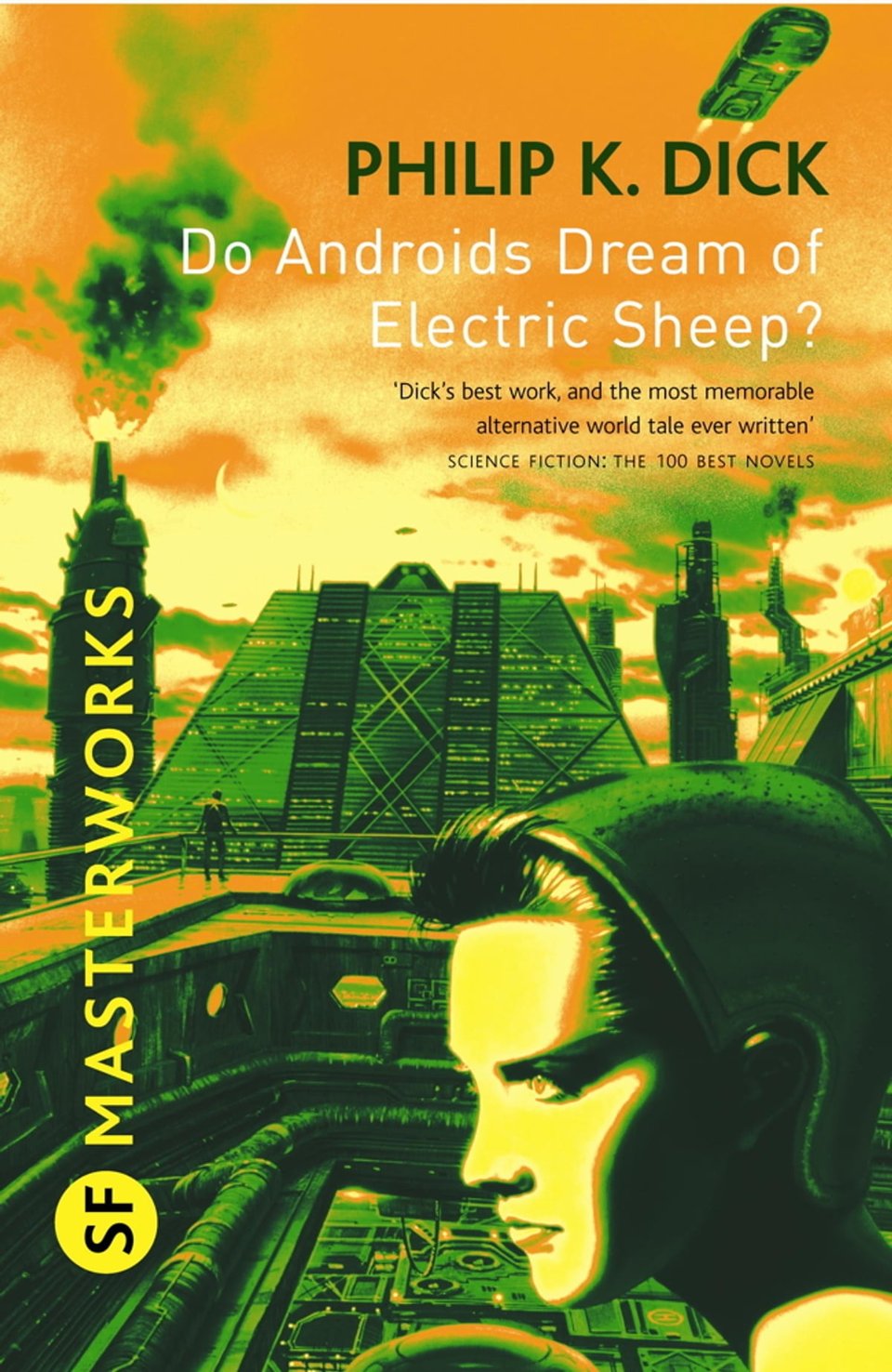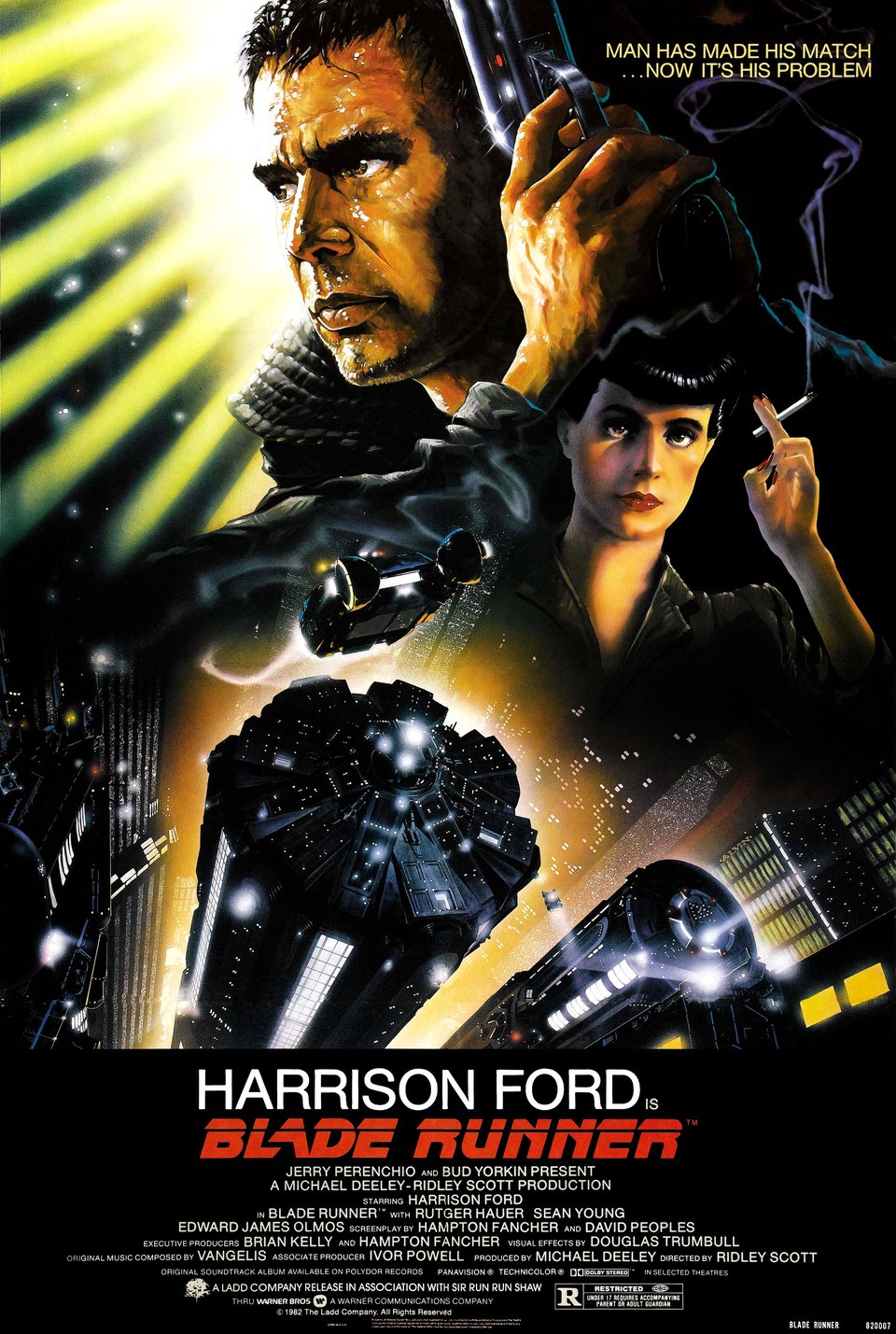Do Androids Dream of Imaginary Movies About Themselves?

You might remember the above part of a meme from my last email. I decided that I needed to write about the inflation of shortlists and the fact that we now have hundreds of “shortlisted” books every year, producing The Casino-Capitalist Photobook Festival.
I tried to suggest some alternatives to what sadly has become much too common. I guess we’ll see whether there will be any changes. [laughter from tape]

I don’t know whether you remember Portishead (the band). They were big in the 1990s. At some stage, I managed to see them play live, and that was truly wonderful. But they’re not around any longer.
One of their members, Geoff Barrow, formed a new band called Beak> afterwards. I enjoyed their first album back when it came out (2009 or so). Somehow, I didn’t follow their output, or maybe my mind was somewhere else. But there now is a forth album, and I thought I should give it a listen. It’s incredible.
If you’re curious but don’t know anything about Beak>, maybe listen to the second track as an example. I think you might like it.
The past few weeks, I’ve been listening to the album on my post-work walks. I don’t know whether this is a pathetic thing to write (it might just be), but I’ve been imagining that the music was written for a movie about me. Obviously, there’s no reason why such a movie would be made in the first place. Nothing would happen in that movie. It would just be this tall guy who hates walking going on the same walk after work every day, through this little village that doesn’t have much to offer — with the soundtrack to that provided by Beak>.
“Is the outer space actually this colorful and vibrant?” asked The Times of India. Well, no, it isn’t. I might have written about this in a much earlier email. Regardless, all those pretty NASA images you’re seeing: that’s all artificial.
A while ago, someone recommended Benjamín Labatut’s When We Cease to Understand the World to me. As a former scientist, I’m always a bit weary when it comes to books about science, in particular the science that I understand well (mostly physics or astronomy). But I enjoyed that book a lot because it was so well written.
Harper’s now commissioned Labatut to write about AI, and the result is very much worth your time: The Gods of Logic.

I just started reading Philip K. Dick’s Do Androids Dream of Electric Sheep again for reasons that I might or might not explain at some later stage. But now that I’m writing this email, I see the connection with AI.
If you don’t know the book, for sure you know the movie adaptation:

Androids and Blade Runner are as similar as Solaris (the book) and Solaris (the movie by Andrei Tarkovsky).
By the way, I literally just found out that the whole Solaris movie in available on YouTube. I’ve seen it a few times. If you’ve never watched it, you should. It’s one of the best movies ever made.
Anyway, both movies follow the ideas of the books they’re based on somewhat faithfully. But there simply are a lot of things that you can’t put into a movie for all kinds of reasons. And there are a lot of things that novels can’t do.
So I really needed to read the book instead of watching Blade Runner. While the movie does a great job at showcasing this noirish futuristic world, the book focuses a lot more on the internal life of its protagonist.
I’m not giving away too much when I tell you that in the book a minor plot point revolves around the fact that one of the most desired goals of its humans is to have a real pet. Most animals have died after what is alluded to as a nuclear war. In their place, artificial animals have been placed: very convincing robots if you will. And of course there now are artificial humans, androids, which provide the main plot point. The book’s protagonist and his wife have a robot sheep (hence the title of the book).
What’s incredible about the good writing by Philip K. Dick is his ability to create pulp fiction that is infused with human desire. That’s my only way of describing why the writing is so good. You get the drastic plots and slightly cartoonish characters from pulp fiction, but there are these heartbreaking strands of humans suffering from a lack of connection all over the work. Unfortunately, the later work is unreadable because it’s filled with esoteric nonsense, given that the author probably had taken too many drugs.
Anyway, Do Androids Dream of Electric Sheep would be a really good book to read if you have never read anything by Philip K Dick. And don’t worry, even though it’s science fiction, the actual science-fiction elements are very minor. You don’t have to sit through pages and pages of descriptions of weird planets or anything like that.

There’s a very good and detailed article about Hippolyte Bayard in the New York Review of Books. You can read it for free if you register (they’ll give you one article per month or so). Ordinarily, I usually don’t bother registering because it’s almost never worth it. But I promise that this article is really good.
For what it’s worth, a subscription to NY Books is worth it. It’s kind of pricey, but they often have special offers. My current subscription came as 10 issues for $10 (this included print and digital). That was too good a deal to turn down.
I’m not into sports, but one of the best galleries of sports photographs I have ever seen is this collection of sad/dejected football players holding trophies. (The text is in German, but you’re not missing anything if you can’t read it.)
Why would you be sad if you just got a trophy? Apparently, they now hand out “player of the game” trophies, which you can win even if your team loses and/or gets eliminated from a tournament.
The thing about that gallery isn’t that I feel Schadenfreude. I don’t (as a Buddhist I try very hard at removing such feelings and thoughts from my life). As I said, I’m also not interested in sports so none of the football aspects mean anything to me.
It’s really rare for me to see photographs that I simply have not seen before. We all have seen so many photographs of proud sports stars posing with trophies, and we’re so familiar with what that looks like. We’ve also seen so many photographs of athletes who just lost out on something. But to see these two together… I can’t be the only person why hasn’t seen this before, can I?
“Russia is entangled in a heavy, impenetrable cocoon,” writes Daria Kozyreva, an 18 year old political prisoner in russia, “a cocoon of silence.” Her words are a searing indictment of the silence of all the people around her (I’m linking to the Google Translate version of the original article):
But many know very well what this villainous government is doing; they carry their disagreement, their indignation, their anger under their hearts. And yet for some reason they remain silent.
Just as any crime is committed with someone’s tacit consent, so any dictatorship is maintained thanks to the silence of the people. A colossus with feet of clay will be worth nothing if all those who disagree speak out.
But they are silent.
Make sure to read the full letter.
I had a couple more links saved. But I think those will go into the next email, given the unplanned side tracking above.
So this then is the end of another email from that little village in Western Massachusetts. I hope that wherever these words might be traveling they’ll find you well.
Elsewhere, I’ve seen people complain about the use of “I hope this email finds you well”. OK, I get it, it’s a phrase that often isn’t meant by those who use it. But honestly, some people do mean it. I know that I do.
With that said, thank you for reading and until next time!
— Jörg